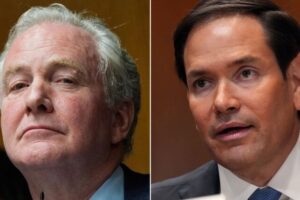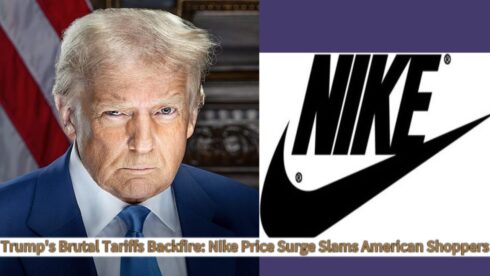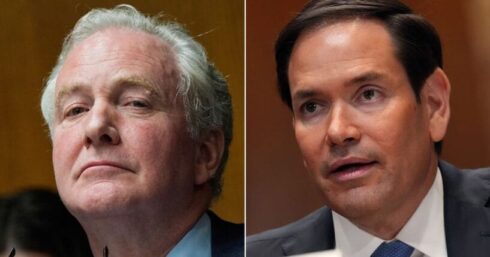President Donald J. Trump ignited political fireworks this week as he endorsed a groundbreaking Republican-led proposal to establish “Trump Trust Accounts” for all qualified American newborns. At a fiery rally in Texas, Trump proclaimed, “It’s time we put America’s babies first with real, lasting wealth—not woke policies,” emphasizing that the initiative would create “instant investors” from birth. With his characteristic bravado, Trump claimed the plan could revolutionize the future of American capitalism and patriotism.
Under the proposed legislation, each qualified infant—born to U.S. citizens and meeting specific eligibility criteria—would receive a government-seeded trust fund, reportedly starting at $5,000. The funds would be managed federally until the child turns 18, accruing compound interest and stock dividends. Trump emphasized that this policy would not only encourage financial responsibility from a young age but would also “preserve the American Dream for generations,” aligning with his broader America First economic agenda.
Conservative Lawmakers Applaud, Critics Slam ‘Political Baby Bonds’
Trump’s announcement was swiftly followed by endorsements from hardline Republican lawmakers, including Senators Josh Hawley and Marsha Blackburn, who framed the policy as a strategic counter to Democrat-led proposals like universal basic income and student loan forgiveness. Hawley noted, “This is how we create patriots, not dependents,” while Blackburn hailed the initiative as “a brilliant stroke of legacy-driven capitalism.”
However, the proposal drew harsh backlash from Democrats and civil rights organizations, with many branding it as “Trump-branded baby bonds with a partisan twist.” Critics argued that the eligibility filters—favoring children born to documented citizens, excluding children of undocumented immigrants, and allegedly considering parental employment history—could institutionalize discrimination. House Democrat Alexandria Ocasio-Cortez labeled it “a MAGA-tier financial caste system in the crib.”
Eligibility Criteria Raise Eyebrows: Who Gets In—and Who Doesn’t?
Trump doubled down on the proposal’s eligibility standards, declaring that only “true American households” would benefit. According to draft documentation leaked from the House Freedom Caucus, eligibility may depend on factors such as legal citizenship, household tax history, and even parental criminal records. “We want to reward responsible families,” Trump said, “not chaos and lawlessness.”
This revelation has sparked alarm among policy experts and ethicists, who warn that such filters could exacerbate existing racial and socioeconomic disparities. “This isn’t just about money—it’s about which babies are seen as worthy of investment,” said Dr. Anika Shah, a sociologist at Princeton. She warned that this could institutionalize a two-tiered infancy in the U.S., creating early financial segregation cloaked in patriotism.
Economic Analysts Divided Over Fiscal Viability and Market Impact

Trump assured the public that the accounts would be funded through “a combination of private partnerships, repurposed foreign aid, and tariff dividends,” although economists remain skeptical. “This is not Monopoly money,” said Paul Krugman, Nobel Prize-winning economist. “It’s a potentially explosive fiscal move that could either create a future class of investors or implode under its own ideological weight.”
While libertarian think tanks like the Heritage Foundation praised the idea as “bold and generationally strategic,” Wall Street analysts caution that injecting billions into trust accounts could destabilize equity markets if not regulated properly. “We’re essentially creating 3 million micro-investors annually—think about the impact of that on long-term asset bubbles,” said Jenny Liu, senior market strategist at BankCore Analytics.
Cultural Fallout: Trump Trust Accounts Spark National Identity Debate
The Trump Trust Accounts have reignited fierce debates over American identity and legacy. Trump declared, “This is about pride—our babies should grow up knowing they are part of a nation that values them from day one.” Yet civil rights groups argue that the plan subtly rewrites who gets to be part of the American narrative. “It’s a cultural land grab dressed as a baby shower,” said Dr. Jamal Henderson of the Brennan Center.
Faith leaders, educators, and activists are weighing in, with some praising the spiritual symbolism of investing in the next generation, while others see it as an exclusionary maneuver. “This is not just fiscal policy—it’s cultural engineering,” said Rev. Alton Briggs of Detroit. “When you stamp Trump’s name on the future of America’s babies, you’re also branding their souls with a political inheritance.”
Legal Challenges Loom as Democrats Threaten Constitutional Showdown
In response to Trump’s initiative, multiple Democratic attorneys general have signaled intentions to file lawsuits should the bill pass in its current form. “This scheme violates the Equal Protection Clause and would turn our infants into political pawns,” said New York Attorney General Letitia James. She warned that discriminatory eligibility criteria could be struck down in court, leading to prolonged legal battles and halted rollouts.
Trump, never one to back down from controversy, brushed off the legal threats with trademark flair: “They tried to stop me before—they failed. This time, we’re fighting for babies, and they’re going to win.” Meanwhile, constitutional scholars are preparing for what may be the most contentious case of birth-based wealth distribution in U.S. history. The final decision, they say, may shape not just the fate of the Trust Accounts—but the future definition of American equality itself.














